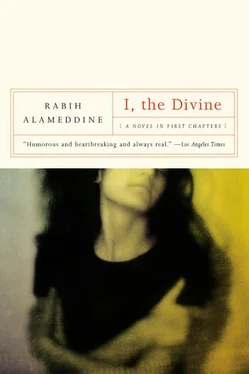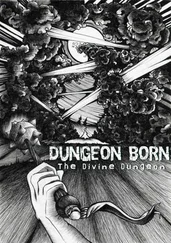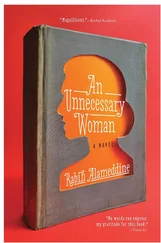By the age of ten, I began to study the plays themselves. I loved L’Aiglon, but if the Divine Sarah was to do Rostand, why not be Cyrano de Bergerac with his panache? I asked my grandfather if he knew whether she had played Cyrano. No, he did not. She could have. The Divine Sarah could do anything. I wanted to know for certain, so I tried to find out. I went to the nuns at school. A kind nun, not typical of the Carmelites, took the time to show me how to use the Encyclopédie Larousse. I looked up the Divine Sarah.
I discovered the Divine Sarah performed L’Aiglon around 1900 or possibly even earlier, not 1912. The revelation shook me. As I was reading, I began to formulate excuses. My grandfather could have been four. No, no, he had not been born yet. She may have performed the play again in 1912. Just because it was performed twelve years earlier did not mean she could not have done it again. Then I read about the accident and tears ran down my face. In 1905, while performing in Rio de Janeiro, she suffered an injury to her right leg. By 1911, she was unable to walk unsupported, and in 1915, the leg was amputated. The Divine Sarah, my namesake, continued acting. When she could not walk, she used canes or was helped onstage by the other actors. After she was an amputee, she used an artificial leg. By 1912, she could not jump across the stage. She could not have done L’Aiglon.
I mentioned nothing to my grandfather, ever. He died unaware I knew. To this day, whenever I feel slightly depressed, I dye my hair red.

The water stands ready. Bath foam, Caswell-Massey Bain Moussant, scent of gardenia. She prepares for the bath with her current book, Naipaul’s A House for Mr. Biswas , a bottle of Crystal Geyser, her Sony cordless phone, and a Granny Smith apple — she loves to eat apples in the bath. Beethoven’s string quartet in C sharp minor by the Tokyo String Quartet fills the room, not a great recording, but more than adequate.
White tiles rise only halfway up the walls of her small bathroom, followed by light blue enamel paint. Half of a wall is covered with postcards of paintings: the Comtesse D’Haussonville by Ingres from the Frick, the great Portrait of Cosimo I de Medici by Pontormo from the Getty Museum, The Order of Release by Millais from the Tate, and her favorite painting of all time, The Toilet of Venus by Velázquez from the National Gallery in London. Her faux marble sink, two faucets, one hot, one cold, like the English sinks. On the shelf below the mirror, Crest toothpaste, an Oral-B toothbrush, Listerine mouthwash, dental floss — have to keep up her almost perfect teeth. Mint soap from S. M. Novella di Firenze. Henna for her hair from Lebanon, two hairbrushes and a hair dryer.
She steps into the tub. It is smaller than the one in Beirut. Still, she remembers being lost in that tub, totally immersed, she remembers trying to get clean. She scrubbed herself with the loofah, over and over, as if there was some dark stain and she Lady Macbeth. Out, damn spot. She was dirty, all of her. She wanted to rub herself raw, remove any traces of herself. She wanted out of her skin. She wanted to be a different person, a better person, her tears adding salt to the bath. She scrubbed her arms, her legs.

I had moved to New York with my first husband, Omar, when I was twenty. Two years later, he would take my son and return to Beirut, leaving me completely alone in an unforgiving city, without family or friends. I had no one in America except for my best friend, Dina, who lived in Boston. I visited her often out of loneliness, continuing even after I remarried. Like me, Dina lived apart from her family, but unlike me, she had adjusted better and much more quickly. It seemed she was adopted into a family in Boston the instant she deplaned. By the time she graduated from MIT, she had a coterie of friends so loyal, they functioned unlike any family I had ever seen. Dina is a lesbian.
Her lesbian family was a hodgepodge of strange characters. I was not sure at first how they could have accepted her so quickly, since her appearance was so different from theirs. Transcending the term lipstick lesbian, she dressed like a cheap whore who just came into a lot of money, whereas all her friends looked like regular dykes. Someone has to come up with a whole new definition for Dina.
I visited her and her partner, Margot, sometime in 1984. I watched her while she cooked dinner — both she and Margot were the worst cooks I knew — noticing how serene she looked, how content, how peaceful and composed, as if she had not a single sin on her conscience. I was so envious. I interrogated and pestered her endlessly, trying to discover her secret. In some ways, she had had a rougher life, yet she seemed at ease with every aspect of it, professionally, emotionally, and romantically, while I was floundering. We spent hours talking about the differences in our lives, our perspectives. By the time I finished my amateurish sleuthing, I came to the erroneous conclusion that the basis for her happiness was her care and support of those dying of AIDS. She was a volunteer with a number of organizations. I believed I should do the same once I settled down somewhere.
After my second divorce, I ended up living in San Francisco. I volunteered for an AIDS organization. I chose one that provided emotional or practical support to people with AIDS. Practical support was not an option for me. There was no way I was going to clean somebody’s bathroom, no matter how sick he was. I never cleaned my own house. How could I conceive of cleaning someone else’s? I also absolutely abhorred grocery shopping.
An emotional support volunteer provided peer counseling, which entailed listening to clients, agreeing with them, having them expound on their feelings, and then validating those same feelings with unconditional positive regard. This is not as easy as it sounds. In any case, in the first couple of years, I could not get any of my clients to express any feelings, let alone my validating them, because they all died on me. That was the thing with AIDS: it killed my clients, rather quickly, I might add. I could not figure out how Dina thought volunteering would help my state of mind. I became an emotional wreck, but all the staff at the organization thought I would be an incredible volunteer if I ever had the chance to work with a client, since I had no problems expressing my feelings.
My first client was Dominic, a Frenchman living in San Francisco. After my training, a weekend of intensive indoctrination, I was assigned to Dominic because of my fluent French. I was given all his particulars: age, relationships, medical symptoms, emotional symptoms, and so forth. He had been waiting for a volunteer for eight months. Unfortunately, my supervisor told me, he was at San Francisco General recovering from a bout of pneumocystic pneumonia. I began getting ready the instant I hung up the phone. I practiced what I would say to Dominic. I stood in front of the mirror making sure I had on my nonjudgmental face, my trust-me-and-tell-me-how-you-are-feeling face. I took my bulky training manual with me.
I arrived at the hospital and inquired about Dominic. I talked to his nurse, who told me he was alone in his room, not doing too well. I walked into his room and saw an emaciated person. He had breathing tubes in his nose as well as a couple of IVs in his arm. I was unsure what to do. Should I wake him to ask him how he was feeling? I sat down on the chair facing the bed to sort out my options. Dominic, lying inert on the bed, had a thin mustache and a wan smile on his face. He looked like a man who had experienced deep sorrow, sorrow without redress. His thin, knobby fingers clutched the blanket tightly. Suddenly he opened his eyes, looking slightly bewildered, as if he did not know where he was. That happened to me often, where I would wake up in my room uncertain where I was. He looked at me quizzically.
Читать дальше














